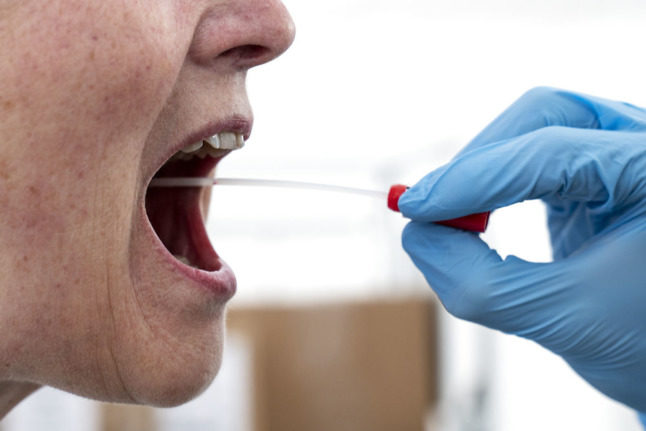The updated measure was confirmed by the Ministry of Health on Tuesday.
Kontakttallet er i dag beregnet til 1,1 Epidemien er fortsat stigende, men det tyder på, at stigningen er aftaget siden sidste uge. Der er større usikkerhed om tallet pga ændret testadfærd. Husk at bestille tid til vaccination, det er afgørende for at nedbringe smitten #COVID19dk pic.twitter.com/dbiTq1cMU8
— Sundhedsministeriet (@DKsundhed) July 20, 2021
According to the ministry, a change in testing behaviour in Denmark means that more uncertainty is associated with the figure than usual.
READ ALSO: Denmark to reduce Covid-19 rapid testing capacity
Last week’s R-number was calculated to be 1.3, which was the highest value recorded since August 2020.
The R-number or reproduction rate is an estimate of the rate of spread of the virus through society. If the number is 1.1, 10 infected people are estimated to infect 11 others, meaning the epidemic is growing. A R-number less than 1.0 means that the epidemic is diminishing.
As such, the Covid-19 epidemic in Denmark remains on an incline but the new R-number suggests that the rate is beginning to slow.
The current situation with the virus is not a cause for immediate concern, an expert said.
“The reproduction rate is always a little behind. It reflects what happened a few days ago. And if we look at the numbers for the last 3-5 days then the epidemic is down to where it’s neither growing nor declining,” said Viggo Andreasen, professor in mathematical epidemiology at Roskilde University.
Uncertainty related to the R-number is linked to variation in the number of people being tested on different days of the week. Testing numbers are also declining overall as the number of vaccinated people increases.
Although the R-number incorporates a lag due to the way it is calculated, it forms part of the background for authorities and experts in decisions regarding the ongoing response to the pandemic.
Daily infection rates and the number of hospitalised people with Covid-19 are also key factors in this regard.
Infection numbers have varied somewhat during the last 10 days, between 1,202 on July 14th and 641 on July 18th.
On Tuesday, 820 new cases were registered from 84,439 tests, giving a positivity rate of 0.97 percent, within the range observed over the last week.
A total of 50 people are currently hospitalised with Covid-19 as of Tuesday. That figure has remained stable throughout July.



 Please whitelist us to continue reading.
Please whitelist us to continue reading.
Member comments